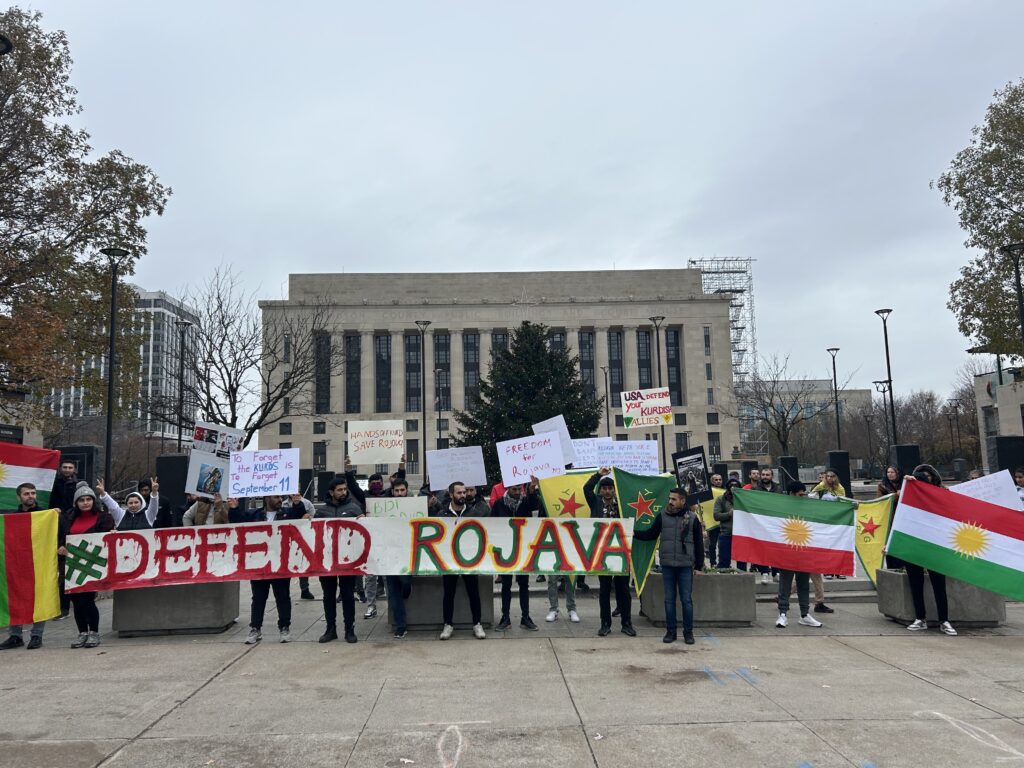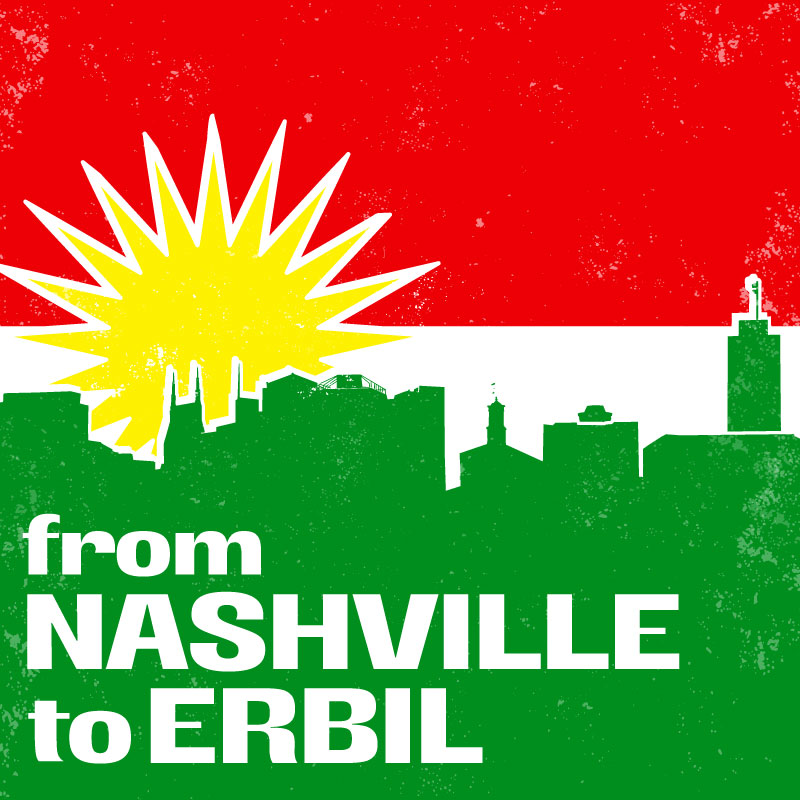
A crowd of about 60 gathered in front of the Christmas tree by Nashville’s downtown courthouse, chanting, singing and holding signs with slogans including “Defend Rojava!” and “U.S.A., Defend Your Kurdish Allies!” A Titans game had just ended, and a steady stream of football fans filed past the demonstration on the way to their cars. Some looked bewildered — others, curious.
Members of Nashville’s Kurdish community were protesting Turkish attacks on Rojava, a Kurdish area of Syria that the Turkish government views as a terrorist stronghold. At least 11 civilians, including six children, were killed by a drone strike, according to the United Kingdom-based Syrian Observatory for Human Rights. Another drone strike injured two paramedics and killed a volunteer and a patient, according to the Kurdish Red Crescent, a humanitarian organization that provides medical care.
 Rose Gilbert WPLN News
Rose Gilbert WPLN News A woman raises her hand in a peace sign while protesting against Turkish attacks on Kurds in Syria.
The Kurdish forces in Syria have been the United States’ main partner in the fight against ISIS. However, the United States and Turkey are also allies — which makes things complicated.
“The Kurdish army in northern Rojava in Syria … was the only ground force with the United States that fights against ISIS and defeats ISIS,” said Kadir Gür, who is spokesperson with the Kurdish American Community Association and helped organize the demonstration.
“Now, the biggest wish for the Kurdish fighters in Rojava is close the airspace in northern Syria to prevent Turkish fighters from bombing civilians and babies.”
Back in 2019, Turkey attacked Kurdish forces in Syria after the Trump administration withdrew U.S. troops from the region, which allowed ISIS to regain a foothold in Rojava. Nashville’s Kurdish community protested then as well.
More: ‘Deep Sadness’ Felt Among Nashville Kurds As Attacks Begin In Syria
“We know our enemy, and we know the Turkish state,” said Xeyri Alkan, a Kurdish man from Turkey.
The government there has historically repressed Kurdish culture and political activity. Since the pandemic, there has been an uptick in Kurds coming to Nashville from Turkey.
“That’s why we today came here,” Alkan said. “And if we do not make our voice heard today, it’s going to be bigger genocide and killing in Kurdistan.”
Republican U.S. Sen. Lindsey Graham of South Carolina released a statement urging the United States to protect its Kurdish allies in Syria.
“We should not allow the Kurdish forces — who helped us destroy ISIS on President Trump’s watch — to be threatened by Turkey or the radical Islamists who have taken over Syria,” he wrote on X (formerly Twitter), referring to the Syrian rebel forces that have deposed former President Bashar al-Assad. “Turkey has legitimate concerns regarding different groups that reside in northeastern Syria. But if there is conflict between Turkey and the Syrian Democratic Forces or Turkey attacks Kurdish forces, it will set in motion an ISIS jailbreak, which would be a nightmare for America.”
Graham added that he drafted sanctions against Turkey before and would be willing to do so again.
Following the sudden end of the Assad regime, the future of Syria is in flux. On Thursday, authorities in Rojava joined the rest of Syria in raising the opposition flag, a pre-Assad regime design with green, white and black stripes and three red stars.
More: Middle Tennessee’s Syrian community celebrates after rebels oust Assad regime
However, as fighting between Turkish and Kurdish forces continue, the future of Syrian Kurds is especially uncertain, caught between the United States’ competing alliances.


